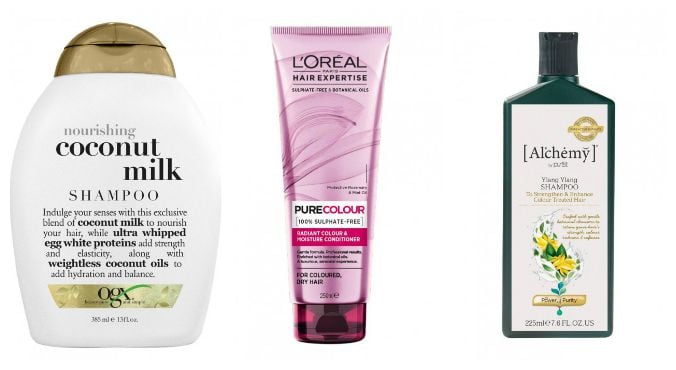
Image: supplied.
It’s no secret that the past few years have seen a growing demand for natural and organic products, but the fancy foreign phrases thrown around can be confusing and overwhelming to say the least.
When it comes to hair, this movement has played out in a shift towards sulphate-free products. But what exactly does this mean and what benefits (if any) does it have?
According to Annabelle Personeni, botanical chemist for hair brand Al’chemy, sulphates are a commonly used surfactant (a mix of molecules that attract water and oil) that creates the cleansing and foaming effect you see in most shampoos.
RELATED: The best shampoos for every shade of coloured hair
An artificial chemical derived from petrochemicals, you may have seen it in the ingredients list as Sodium Lauryl Sulfate (SLS) and Sodium Laureth Sulfate (SLES).
They work by separating grime, dirt and oil from your hair, while allowing it all to be rinsed off with water.
Although commonly used in shampoos for this reason (they’re also one of the cheapest cleansing ingredients to use for mass production) they can cause problems in some individuals.
“They can actually strip away moisture and cause irritation to the scalp,” explains Personeni. (Post continues after gallery.)
Celebrities with bronde hair.
While sulphate-free shampoos have long been an obvious alternative for people with sensitive skin, The Blonde Room‘s founder George Giavis says more and more clients are asking for these products for a different reason.
“I think my customers are generally now more informed when it comes to ingredients and chemicals in products, and I am certainly seeing an increased demand for sulphate-free shampoos,” he says.
RELATED: 14 things hair experts would really like you to stop doing to your hair
Top Comments
We made the switch quite some time ago for two reasons: 1, to stop our colours fading and 2, my Mum developed an allergy to sulphates which showed as a rash on her face. I can't remember the technical name but it's apparently quite common. But since changing shampoos and being careful to buy sulphate free body wash we've had no issues. We use Nak but have also used De Lorenzo and L'Oreal brands in sulphate free and all are great products.